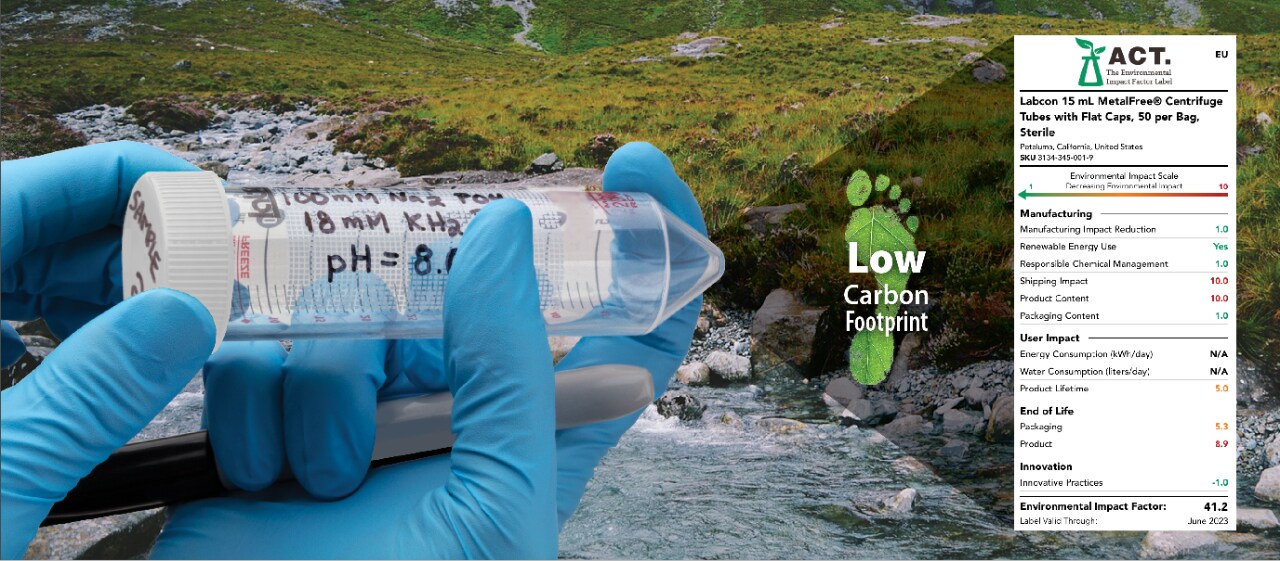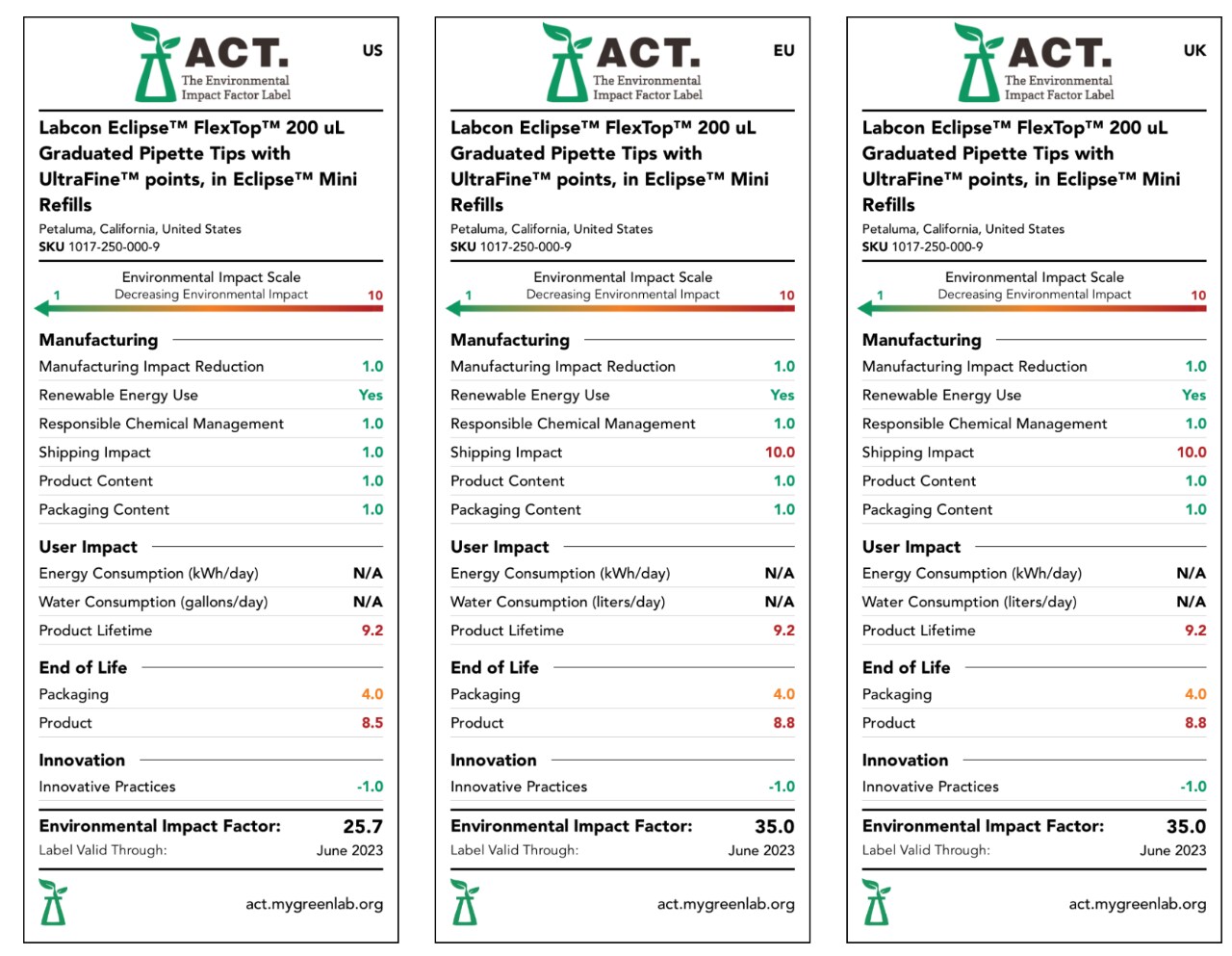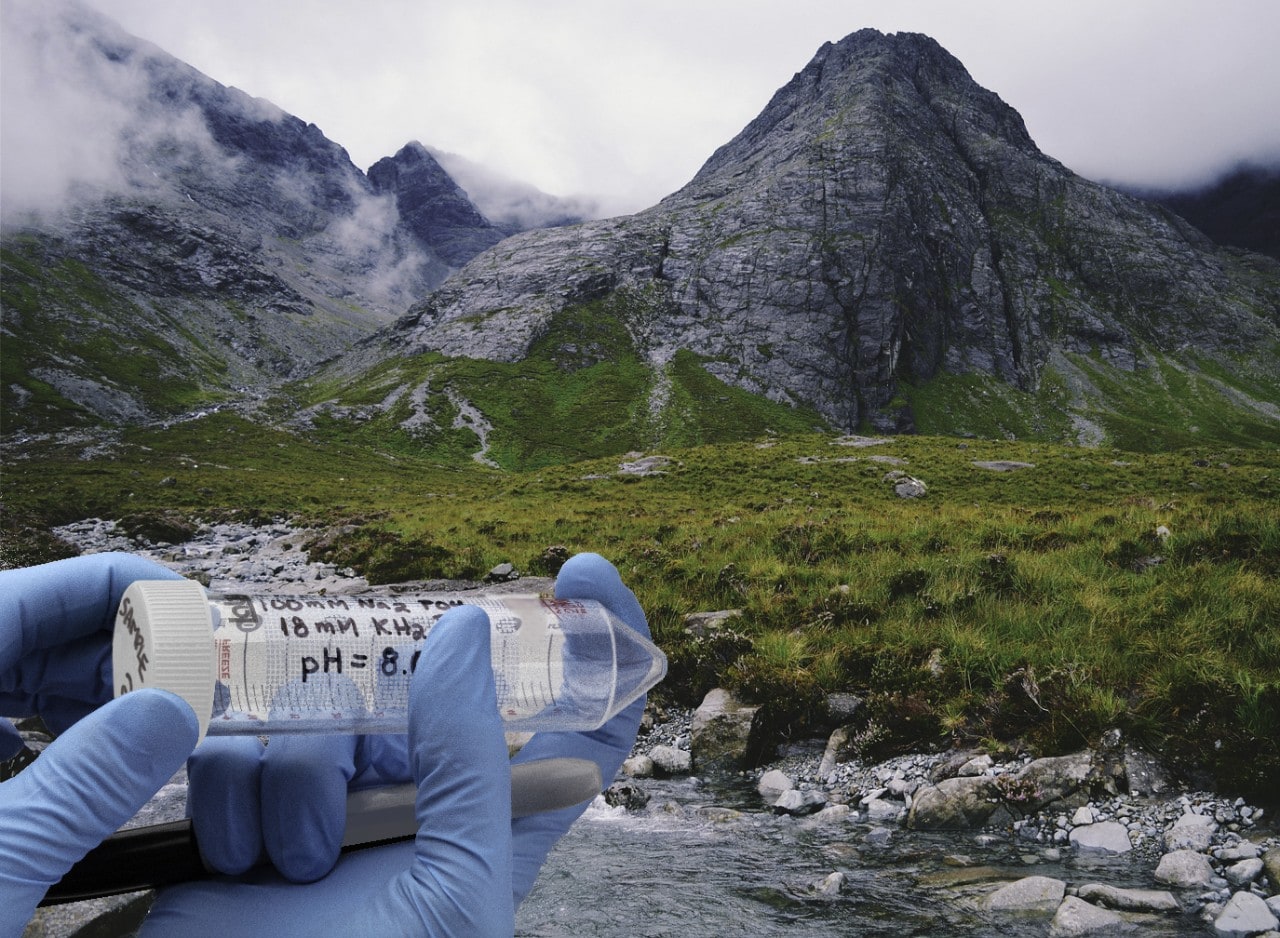Can Choosing the Right Consumables Reduce your Carbon Footprint?
Sustainability is a key priority for labs worldwide, but most benchwork still depends on single-use plastic consumables. While a growing number of manufacturers have worked to improve the environmental impact of these critical consumables, scientists now face the challenge of comparing and choosing the most eco-friendly options for their research. To reduce this challenge, My Green Lab, a global non-profit organization, created a product evaluation tool to help scientists evaluate the sustainability of laboratory products: the ACT Environmental Impact Factor Label.
What is the ACT Label?
Developed by scientists, sustainability directors, procurement specialists, and other industry experts, the ACT Label is the most comprehensive product labelling program for life science products. ACT stands for Accountability, Consistency, and Transparency. The ACT Label takes into account factors such as whether a manufacturing facility uses renewable energy, the impact of shipping, what a product is made of, as well as its packaging, lifetime rating, and disposal. The ACT Label employs a simple scale of 1 to 10 for each subcategory. A score of 1 represents the lowest environmental impact and a score of 10 represents the highest environmental impact.
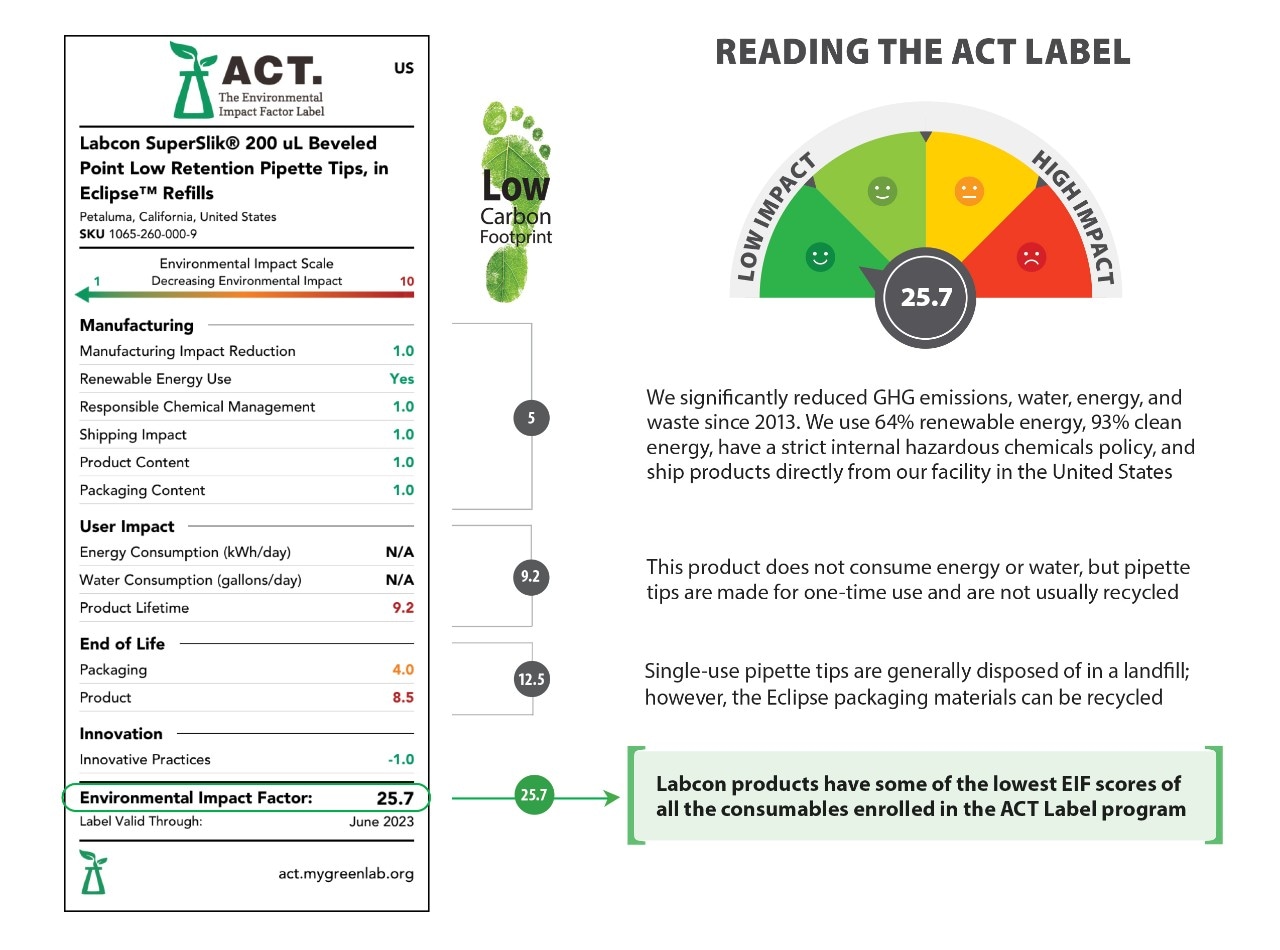
"Among the many manufacturers in the ACT database, Labcon receives industry-leading ACT scores for its laboratory consumables."
In addition to the overall ACT scoring, the detailed results of each product audit can be found in each label’s supplementary information in the ACT database. To find out more information, please access the global database.
With a recently renewed and expanded presence, Labcon offers nearly 600 ACT labels for products offered in the US, EU, and UK markets and receives the lowest (best) possible rating in Manufacturing Impact due to major energy and material reductions made over the last two decades.
The Road to Greener Consumables
Based in California, USA, Labcon is a leading manufacturer of low-carbon laboratory disposables with a longstanding commitment to reducing the environmental impact of its products and operations. Labcon’s mission for improved sustainability goes back to 1994 when they replaced the Styrofoam racks for centrifuge tubes with the first recyclable cardboard rack on the market. Over the past 25 years, Labcon has taken industry-leading steps to improve the design of its products, promote reusability, and reduce its energy consumption, greenhouse gases, and waste. Labcon performs all of the operations, including product design, manufacturing, packaging, and sterilization on the same site in California. Unlike many other manufacturers, performing everything in one place means there is no extra transport and no additional greenhouse gases generated.
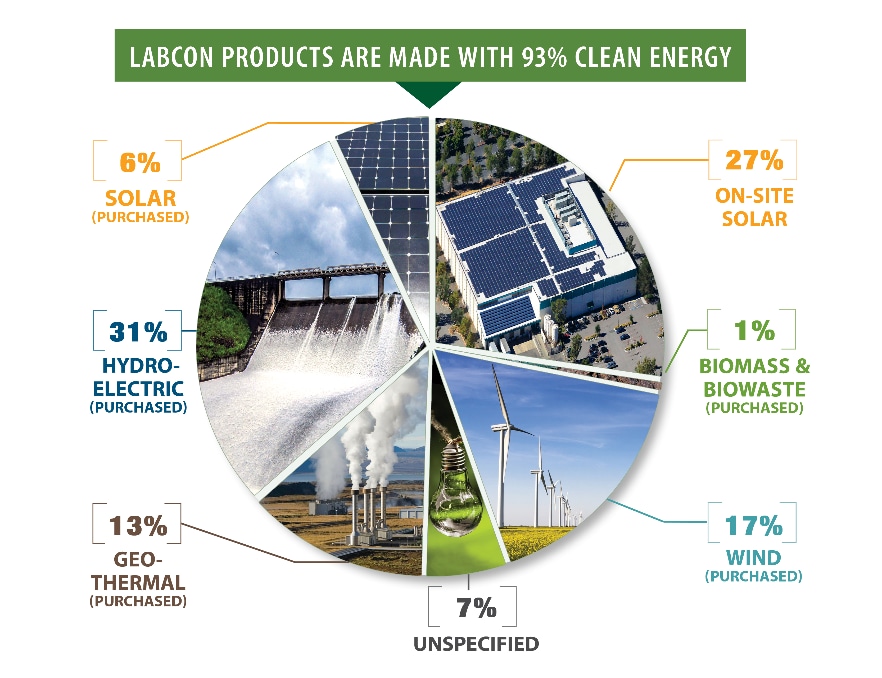
In 2011, an 870 kilowatts solar facility was installed on the roof of the manufacturing site supplying 30% of the energy needs and by 2015 Labcon had partnered with the Environmental Protection Agency as a green power supplier and had started to source the remainder of our energy locally from Sonoma Clean Power. This allowed them to use 93-97% clean energy for the manufacturing facility.
In 2017, the commitment to reducing packaging waste and creating reusable lab products, such as the very popular Eclipse Pipette Tip Refill System, was recognized by receiving The Golden Arrow Award from the California Product Stewardship Council.
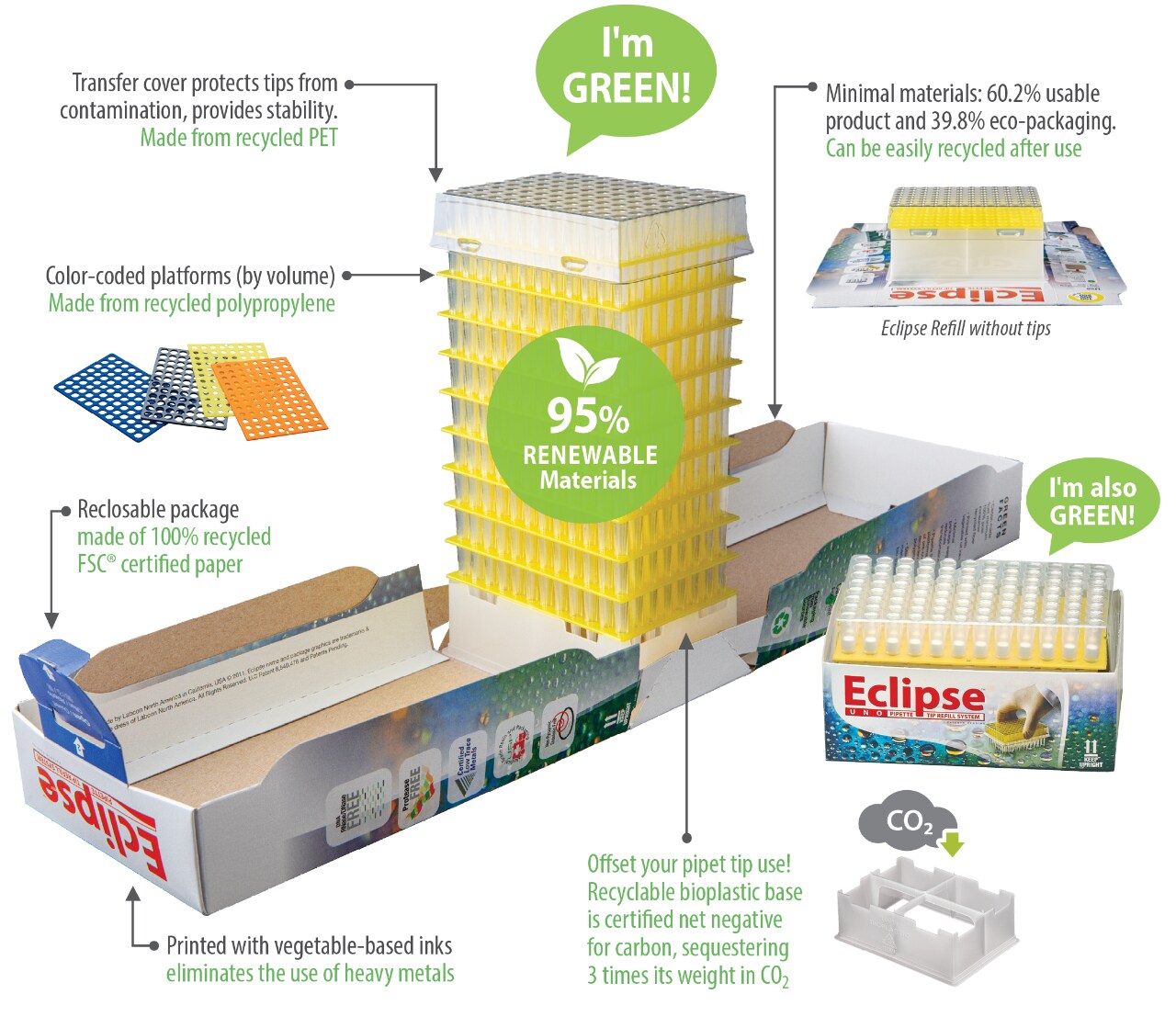
With the expansion, Labcon has added labware such as filter tips and specialized tubes like the MetalFree™ Centrifuge Tubes. The MetalFree™ Centrifuge Tubes are very popular for assays used in areas like environmental testing, as they are certified for 21 different elements down to one part per billion (ppb) instead of one part per million (ppm), meaning scientists don’t need to worry about rogue peaks in their ICP-MS tests. Currently, Labcon is the only manufacturer offer a series of deep well plates with ACT scoring.
Inaccurate and misleading claims were a problem in the food industry before the Nutrition Labeling and Education Act of 1990 required verified information to be printed on each package of food. The ACT label looks to bring the same benefits to lab products to improve the sustainability of science. Each year, the push for lab sustainability grows stronger as more life science companies set waste and carbon reduction goals. Without clear guidelines and easily accessible information, eco-fatigue will reduce the effectiveness of green initiatives. To combat fatigue, it’s important to simplify decision making, and the ACT label supports the decision-making process when purchasers want to buy the lab products best for our Earth.
